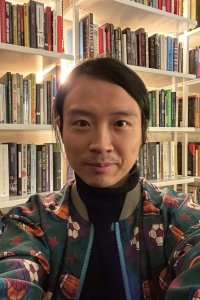Presented By: Lieberthal-Rogel Center for Chinese Studies
LRCCS Noon Lecture Series | The Cultural Revolution in a Confucian School: Radical Conservative Movement of Grassroots Confucianism in Contemporary China
Yukun Zeng, Postdoctoral Fellow, Lieberthal-Rogel Center for Chinese Studies, University of Michigan

Attend in person or via Zoom: https://myumi.ch/g1ggR
Dujing, literally meaning “reading” (du) “classics” (jing), is a grassroots Confucian education movement in contemporary Chinese societies. Originating in Taiwan in 1994, this movement has mobilized hundreds of thousands of youths to read Confucian classics aloud without regard for understanding, with the hope that repetitive recitation will eventually lead to eternal wisdom (dao). In its most intensive forms, seen in Mainland China, students read for eight hours a day for years and are often urged by parents (usually mothers) to drop out of legally mandatory mainstream schooling.
Although the revival of Confucianism may easily be reduced to cultural engineering by party regimes (both PRC and ROC), Dr. Zeng argues that dujing prefigures the radical moral politics embedded in grassroots Confucianism and similar radical conservative movements in China. The ethnographic focus of this talk is a “Cultural Revolution”-like campaign within the movement. He analyzes the productive tensions of dujing in three facets: autonomist Confucianism, moral schismogenesis, and the alienation of wisdom/authority. This talk informs reflections on political culture in China, moral anthropology, and studies of grassroots social movements.
As an anthropologist, Dr. Zeng’s knowledge production focuses on ethnographically understanding the situational dynamics and dilemmas of family, education, religion, and social movement in contemporary mainland China and Taiwan. His dissertation, “Canonical Reading, Alternative Education, and the Movement of Eternal Wisdom in Contemporary Chinese Societies”, interrogates the contemporary grassroots Confucianism in contemporary Chinese societies by probing the intersection of language, knowledge, gender, and social movement. He also co-runs the public anthropology platform Tying Knots 结绳志 and experiments with multiple ways to do urgent and engaged ethnography.
If there is anything we can do to make this event accessible to you, please contact us. Please be aware that advance notice is necessary as some accommodations may require more time for the university to arrange.
Dujing, literally meaning “reading” (du) “classics” (jing), is a grassroots Confucian education movement in contemporary Chinese societies. Originating in Taiwan in 1994, this movement has mobilized hundreds of thousands of youths to read Confucian classics aloud without regard for understanding, with the hope that repetitive recitation will eventually lead to eternal wisdom (dao). In its most intensive forms, seen in Mainland China, students read for eight hours a day for years and are often urged by parents (usually mothers) to drop out of legally mandatory mainstream schooling.
Although the revival of Confucianism may easily be reduced to cultural engineering by party regimes (both PRC and ROC), Dr. Zeng argues that dujing prefigures the radical moral politics embedded in grassroots Confucianism and similar radical conservative movements in China. The ethnographic focus of this talk is a “Cultural Revolution”-like campaign within the movement. He analyzes the productive tensions of dujing in three facets: autonomist Confucianism, moral schismogenesis, and the alienation of wisdom/authority. This talk informs reflections on political culture in China, moral anthropology, and studies of grassroots social movements.
As an anthropologist, Dr. Zeng’s knowledge production focuses on ethnographically understanding the situational dynamics and dilemmas of family, education, religion, and social movement in contemporary mainland China and Taiwan. His dissertation, “Canonical Reading, Alternative Education, and the Movement of Eternal Wisdom in Contemporary Chinese Societies”, interrogates the contemporary grassroots Confucianism in contemporary Chinese societies by probing the intersection of language, knowledge, gender, and social movement. He also co-runs the public anthropology platform Tying Knots 结绳志 and experiments with multiple ways to do urgent and engaged ethnography.
If there is anything we can do to make this event accessible to you, please contact us. Please be aware that advance notice is necessary as some accommodations may require more time for the university to arrange.